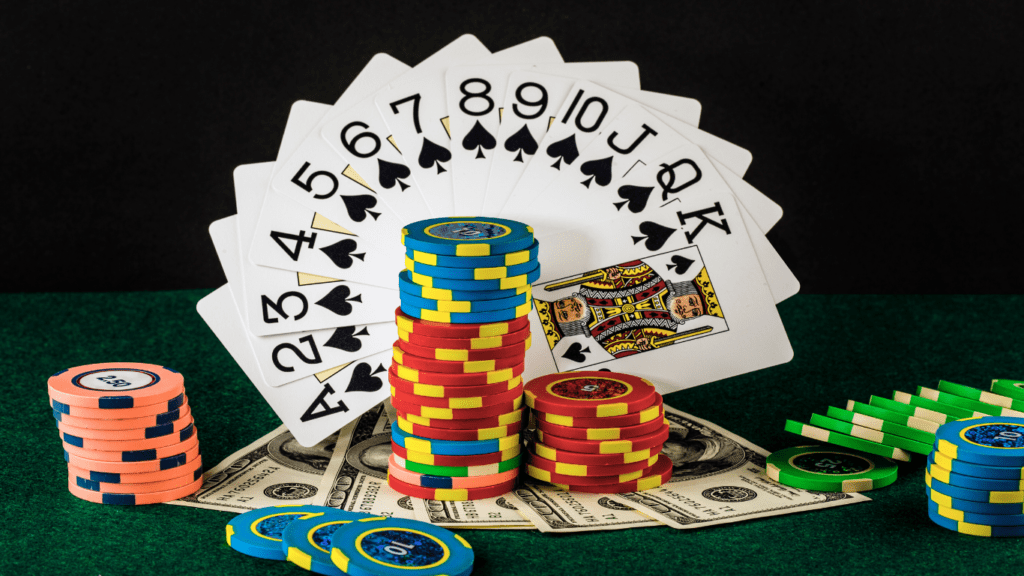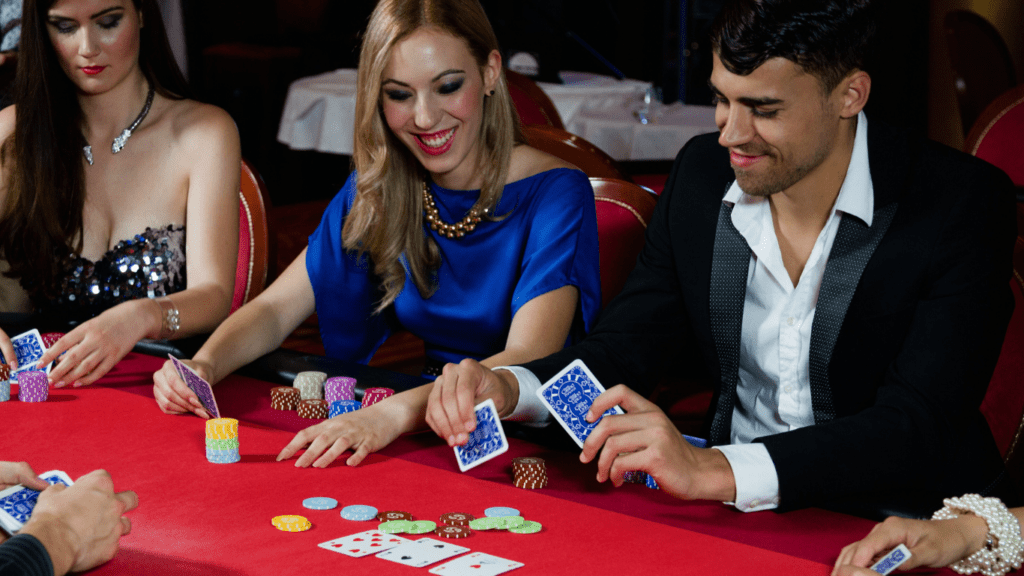Gambling can be an exciting way to unwind and enjoy a bit of thrill, but it’s easy for the fun to spiral into something more serious if you’re not careful. I’ve seen how quickly the line between entertainment and risky behavior can blur, and it’s a challenge many people face without even realizing it. The key is finding balance and staying in control.
Understanding the Importance of Responsible Gambling
Responsible gambling ensures that I can enjoy betting activities without risking excessive harm to myself or others. It involves maintaining control over the time, money, and energy I invest in gambling. By adopting this approach, I prioritize fun while minimizing the likelihood of facing financial or emotional distress.
Recognizing gambling as entertainment, not a way to make money, keeps expectations realistic. Games of chance are unpredictable by nature. Though occasional wins may occur, consistent earnings are unattainable, so I avoid placing bets with that goal in mind.
Setting limits plays a key role in responsible gambling. Specific boundaries, such as a budget for losses or a maximum amount of time spent, prevent me from exceeding what I can afford. I’ll stick to these limits even when tempted to chase losses or extend a session.
Awareness of emotional triggers helps me stay in control. If I notice feelings of stress, frustration, or anxiety while gambling, I stop. Gambling should remain a stress-free activity, and engaging when upset can lead to impulsive decisions.
Accessing support resources provides additional safeguards if my habits shift toward harmful patterns. Services, like helplines and counseling, offer guidance and strategies for anyone struggling with gambling-related concerns. I utilize these tools when needed to stay on track.
How to Keep Gambling Fun
Maintaining gambling as a fun and enjoyable activity requires planning and mindfulness. Setting boundaries and keeping a healthy perspective help prevent negative outcomes.
Set Personal Limits
Defining specific limits keeps gambling enjoyable. I allocate a fixed amount of money that I can afford to lose before starting any betting session. If I reach that limit, I stop gambling immediately. Similarly, I set strict time boundaries to ensure that gambling doesn’t consume too much of my day. For example, I might limit myself to one or two hours per week. These measures prevent overspending and overindulgence.
Balance Gambling with Other Activities
Diversifying entertainment reduces excessive reliance on gambling. I make it a point to engage in hobbies like reading, hiking, or socializing with friends. Spending time with family or exploring creative pastimes helps me remain balanced and prevents gambling from becoming a dominant activity. By maintaining a variety of interests, I ensure that gambling stays a complement to my lifestyle rather than its focus.
Focus on Entertainment, Not Winning
Viewing gambling as entertainment promotes healthier habits. I treat every betting session as an exciting way to unwind, not as a way to earn income. For instance, I remind myself that losing is a natural part of the experience. By celebrating the thrill of participation instead of obsessing over financial gains, I enjoy gambling without stress or regret.
Recognizing Signs of Problematic Betting Habits

Identifying the early signs of gambling issues helps maintain control and prevent long-term negative consequences. Paying close attention to behaviors and patterns reveals when enjoyment begins turning into a problem.
Emotional and Financial Warning Signs
- Experiencing heightened stress, frustration, or anxiety frequently during or after gambling often signals a shift from fun to compulsion.
- Feeling guilt or regret about gambling losses, or using it as an escape from personal challenges, indicates potential emotional dependence.
- Financial strain, such as difficulty paying bills or borrowing money to fund gambling, is another red flag.
- Examples include prioritizing betting over essential expenses or hiding gambling activity from loved ones.
- Consistent overextension of budgets or chasing rewards that never materialize could signify an unhealthy pattern.
The Impact of Chasing Losses
Repeated attempts to recover losses through additional bets can escalate financial and emotional stress. This behavior—commonly referred to as “chasing losses”—often leads to even greater deficits, intensifying feelings of helplessness.
Pursuing losses disrupts rational decision-making. For instance, taking larger risks or gambling impulsively despite previous outcomes often reflects desperation rather than strategy. Recognizing these tendencies early makes it easier to intervene before harmful cycles develop.
Strategies to Avoid Problematic Betting
Maintaining control over gambling habits requires deliberate actions and thoughtful planning. Following structured strategies can help keep gambling enjoyable and free from harm.
Stick to a Budget
Setting a clear gambling budget ensures financial stability and prevents overspending. I allocate a specific amount of money, separate from my essential expenses and savings, strictly for entertainment purposes. Once I hit that limit, I stop gambling, even if I feel tempted to continue. Tracking spending regularly and using tools like budgeting apps can help reinforce accountability.
Take Breaks and Reflect
Frequent breaks reduce the risk of emotional or impulsive betting decisions. I step away from gambling sessions to engage in other activities, such as exercising, reading, or spending time with friends. These breaks also allow me to reflect on my gambling behavior, ensuring it aligns with my initial goals and limitations. By staying mindful, I recognize triggers that might lead to risky betting.
Seek Help if Needed
Recognizing when professional support could be beneficial is key to managing potential issues. If I notice signs of problematic gambling, such as chasing losses or neglecting responsibilities, I reach out to support networks like helplines or counseling services. Speaking to a trusted friend or family member can also provide an external perspective and alleviate burdens. Resources like the National Problem Gambling Helpline (1-800-522-4700) are readily available for immediate assistance.
Tools and Resources for Responsible Gambling
Accessing tools and resources designed to support responsible gambling can help maintain healthy betting habits and prevent issues from escalating. These tools provide practical ways to:
- set limits
- seek support
- stay informed
Self-Exclusion Programs
Self-exclusion programs let individuals restrict their access to gambling platforms or venues. Users can enroll in these programs to block their accounts or suspend access for a specified period, ranging from months to years. For example, GamStop in the UK and BetBlocker offer free self-exclusion services for online gambling. Many land-based casinos also provide in-house self-exclusion systems to prevent entry. These programs act as a barrier for those needing time to regain control, ensuring gambling remains manageable and stress-free.
Educational Platforms and Support Groups
Educational platforms and support groups raise awareness about responsible gambling and offer strategies for maintaining control. Websites like the National Council on Problem Gambling (NCPG) and Gambling Therapy provide resources, self-assessment tools, and educational materials on gambling behaviors. Support groups like Gamblers Anonymous create safe spaces for individuals to share experiences and establish accountability. Those seeking guidance can use these platforms to learn effective methods for avoiding problematic gambling while connecting with others who share similar challenges.


 Alex Hobart is the founder of Gamble Time Hub, a cutting-edge platform dedicated to delivering up-to-date gambling news, in-depth sports betting insights, and compelling high-stakes gambling stories. With a sharp eye on the evolving landscape of betting, Alex created the hub to inform, engage, and empower both new and experienced gamblers. Committed to promoting smart and safe play, Alex also champions responsible gambling through practical tips and educational content, making Gamble Time Hub a trusted resource in the gambling community.
Alex Hobart is the founder of Gamble Time Hub, a cutting-edge platform dedicated to delivering up-to-date gambling news, in-depth sports betting insights, and compelling high-stakes gambling stories. With a sharp eye on the evolving landscape of betting, Alex created the hub to inform, engage, and empower both new and experienced gamblers. Committed to promoting smart and safe play, Alex also champions responsible gambling through practical tips and educational content, making Gamble Time Hub a trusted resource in the gambling community.

